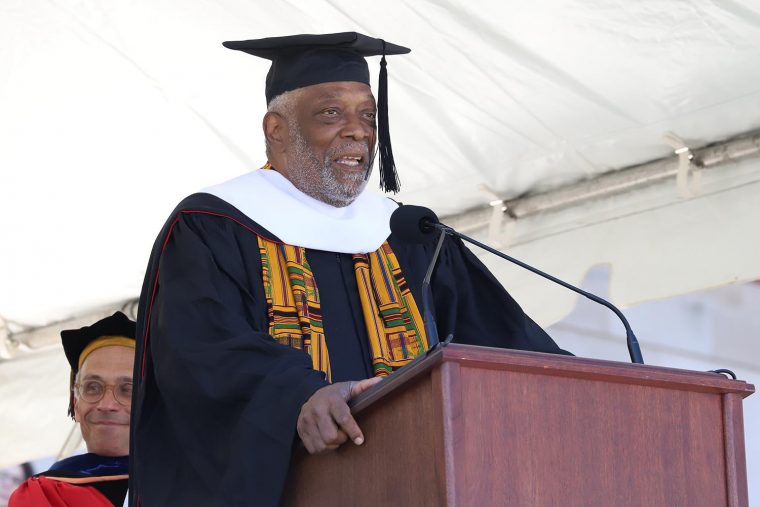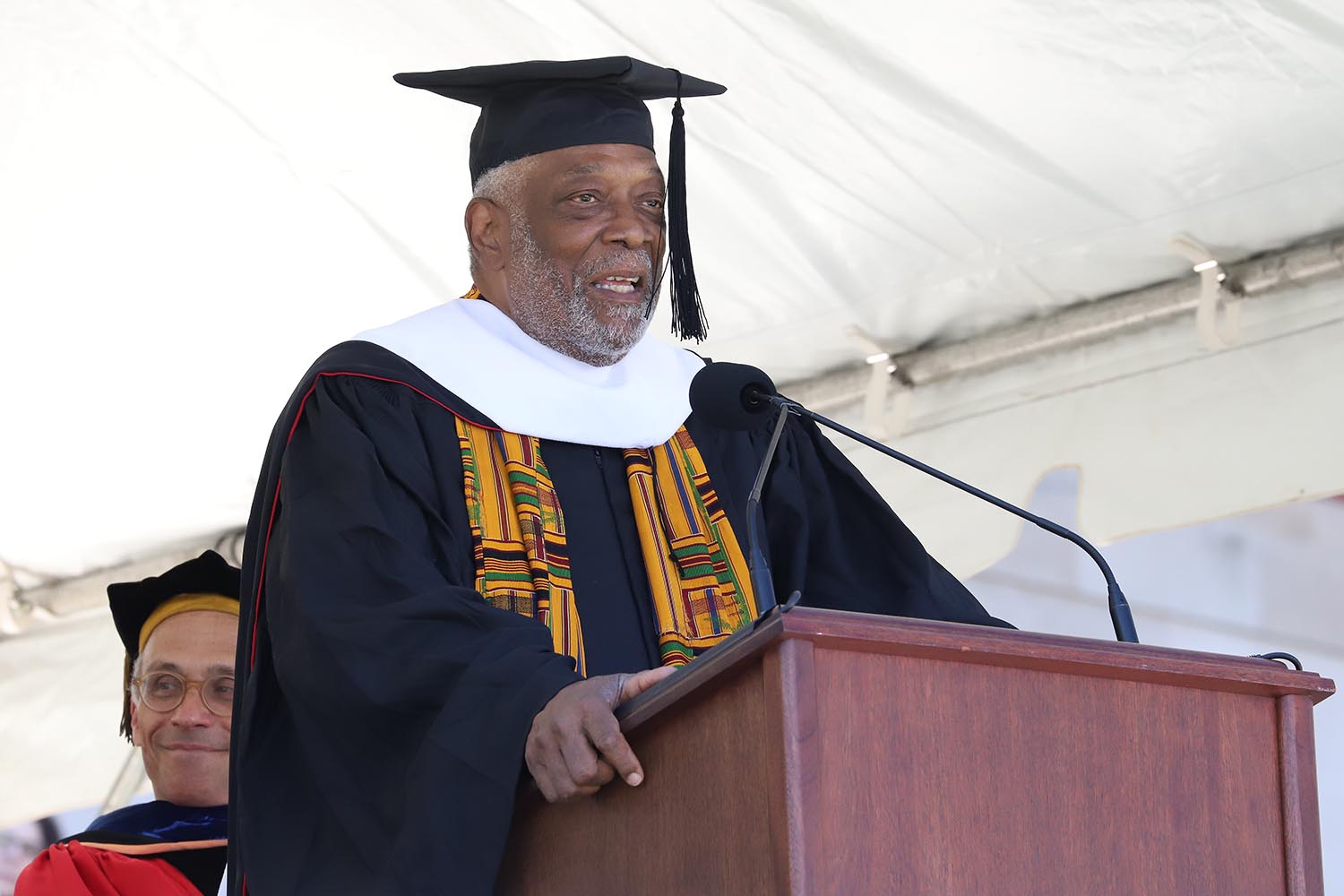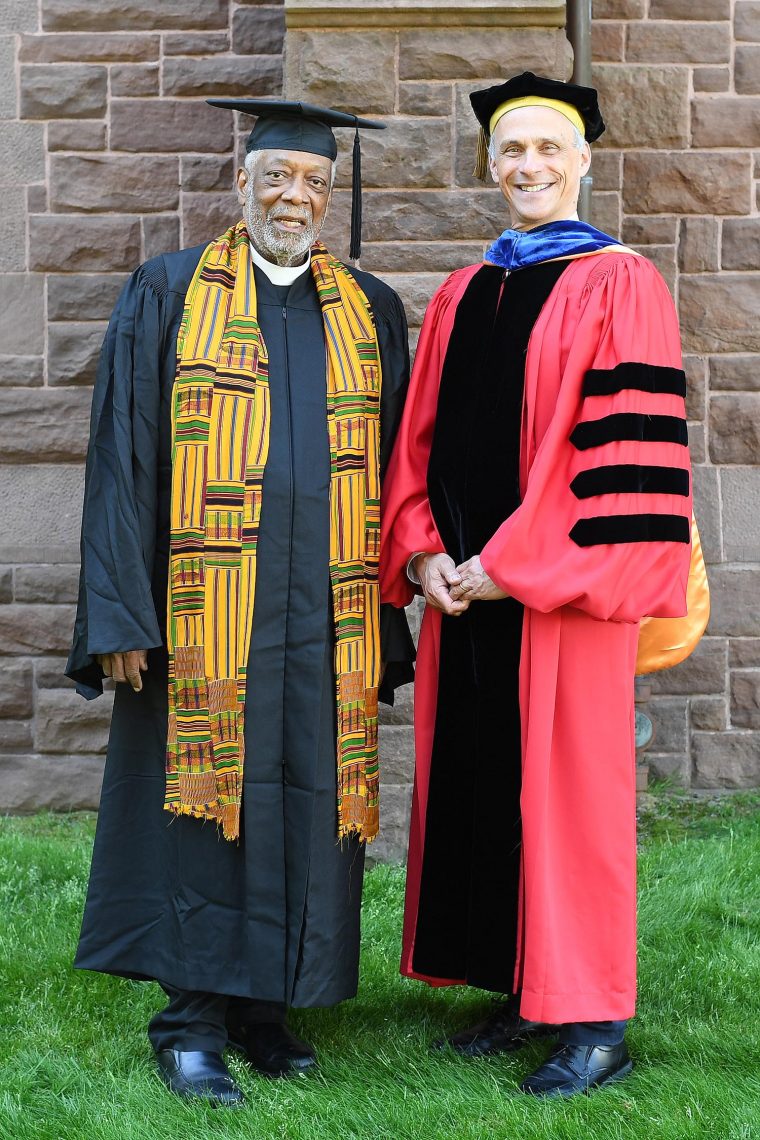Rev. Edwin Sanders ’69 Makes Remarks at 2019 Commencement



The Reverend Edwin C. Sanders II ’69 is the senior servant and founder of Metropolitan Interdenominational Church (established 1981) in Nashville, Tennessee. An anthropology major while at Wesleyan, Rev. Sanders began his career as co-director of Wesleyan’s African American Institute, later serving on Wesleyan’s Board of Trustees and receiving the University’s Distinguished Alumnus Award in 2014. He pursued graduate studies at Yale’s and Vanderbilt’s divinity schools, has been a member of advisory committees and councils for the Clinton, Bush, and Obama administrations, and has spoken at numerous international AIDS conferences. Rev. Sanders is the founding chair and current ambassador of the HIV Vaccine Trails Network Legacy Project Advisory Group designed to increase the participation of African Americans, Latinos, and Asian Pacific Islanders in HIV vaccine studies; and he serves on the President’s Emergency Plan for AIDS Relief (PEPFAR) Scientific Advisory Board and the Boards of National Minority AIDS Council (NMAC), the Drug Policy Alliance, and the Black AIDS Institute.
Sanders’s speech is below:
When I think about the Class of 1969, of which I was a part, I realize that perhaps we have come a long way and there are some majors ways in which the experience here at Wesleyan helped to shape the responses we have been able to bring forth in many arenas. I won’t even begin to try to enumerate the many arenas in which we have come to play roles in professional life, as well as community life, and that allow us to be true citizens of the world. But I would say this to you: what we discovered in the relationship to developing our consciousness would allow us to be the ones who would promote and advance social justice for all people–that is something that we did a job of trying to develop in the mid-60s. Today, the 21st century realities that we face probably demand a kind of appreciation or a social justice consciousness that is equally great to that which we had 50 years ago.
When I think about celebrating the fact that we now have a department of African American studies [applause] that has been initiated on this campus, I’m excited, I’m thrilled, but I want you to know that I also have to realize that it is the demand that we made 50 years ago. And I pray that it will not be your 50th reunion before you see many of the other things that you know are a part of what will make this place that we have come to refer to very often as “Diversity University” the place that really represents the level of inclusiveness and welcome that takes us to new levels. And our years at Wesleyan are of major significance, especially as relates to developing the social justice consciousness that is necessary to address our 21st century realities.
Four hundred years ago, the horror of slavery became a defining moment in the history of this country. In 1831, this institution was established, and even though from the beginning there have been some gestures to correct the social sickness of racism, it was not until 1965 that the bold step of inclusion, which allows me to be able to stand here today, was taken. There are many such steps that still have to be taken.
I am honored to represent this era and I pray that this day will represent a day of rededication, a day of reconsecration, a day of new awareness, appreciation, and understanding of the power each and every one of us can bring to bear in the arenas of life that will be before us. And I pray that the academic environment at Wesleyan University will promote and encourage agents of truth and change, and that that is something that will never be dissipated. I can never begin to call all the names of all of those who have been a part of my life as a result of classroom experiences and relationships I have had here. But one thing I do know is that as we go forward, the experiences that you’ve had, those who have encouraged you, those who allowed you to become aware of the things that too often get swept under the rug and not dealt with forthrightly in institutions of higher learning, are things that you will carry with you.
I’m going to leave one thing that I would have you carry with you. I must admit I picked up the Wesleyan songbook the other day and I found myself realizing that I really don’t know any of those songs [laughter]. But there were songs that we sang and one of those songs I want to sing with you right now. I want to encourage you to sing it, and if there are those that are bold enough and believe enough in it, I’m sure you will sing it with me. A few years ago, an honorary degree was conferred upon Bernice Reagon, who most of you all know for her work with Sweet Honey and the Rock. So, if you will and if you feel it’s part of something you can embrace, sing with me and if you want to be bold enough, you can stand while you sing the simple words I pray you’ll carry with you (even if you never learned any of the songs in the Wesleyan songbook). The song simply says:
[singing] “We who believe in freedom cannot rest until it comes.”

